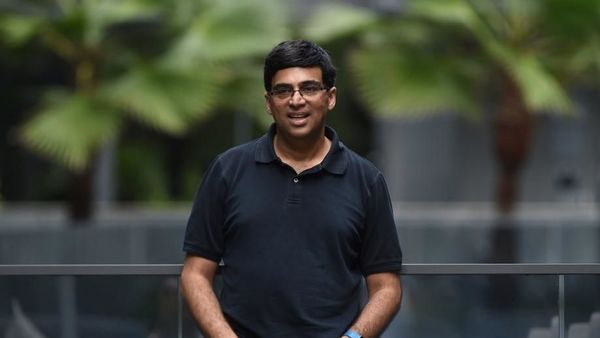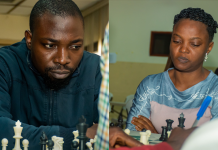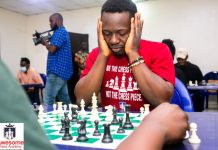The five-time world champion talks about his life experiences, the lessons he learnt about leadership from chess, and his forthcoming biography, Mind Master: Winning Lessons From A Champion’s Life.
As a child, chess master Viswanathan Anand picked up a habit on his mother’s insistence: jotting down his impressions immediately after a game; typically, a loss. The practice slowly grew on Vishy, as his friends and fans call him. Putting down the observations “when the pain was raw, I stumbled upon the solutions I had seen but didn’t act upon or the ones I had overlooked,” says Anand. Over time, the scope of his notes widened. They now include his opponents’ quirks, gestures and all little things that tend to distract him before or during a game.
The five-time world champion revisits many such life experiences in Mind Master: Winning Lessons From A Champion’s Life (as told to sports writer Susan Ninan), which will release on 11 December—his 50th birthday—to offer lessons on how to navigate personal and professional lives. In an interview with Mint, he talks about the strategy to stay ahead in the game and in life. Edited excerpts:
What has chess taught you about leadership?
I have learnt two lessons. First, constant and objective self-critical analysis because it is important to have an accurate picture of who you are, what your strengths and weaknesses are and what are the things you need to move forward. The second thing is to force yourself out of your comfort zone once in while and the ability to take risks; without that it is very hard to make big progress.
In the book, you mention Steve Jobs’ calligraphy skill and how it helped him build apple. What skill did you pick up?
I think when he learnt calligraphy he had no idea how useful it would be one day. He must have done it for fun, and probably the fact that he did it for fun he learnt much more than usual.
I believe my learning Spanish and German have helped me connect with more people while travelling for games. There was a time when I was going through a slump and my German lessons gave me a lot of joy. They were a good distraction for me.
There’s enough chatter about the need to be obsessed with your target to reach the top. How important is obsession to you?
To achieve life’s big goals, like, for instance, my quest to become a world champion, you need some degree of obsession. Not on a day-to-day basis but long term you have to constantly keep an eye on the goal because without that it is easy to take your foot off the pedal. So yes, you have to obsessed about something to achieve success.

Unlearning is considered an effective way to work and lead better. What strategy do you follow to unlearn and relearn?
Unlearning and learning are vital processes in chess because new information keeps coming out and you have to keep yourself updated.Learning is easier because there are new facts and if they don’t conflict with any impressions you already have, then you familiarize yourself with new facts and repeat and revise them till they become second nature.
Unlearning is harder because there will always be some old, very strong impression you have and you may find yourself lapsing back to your old way of thinking. So the most important thing is to work hard and make sure you make a conscious effort to clarify anything that you have a hazy grasp of so that you get better at it.You mention that visualizing future success is not always a good idea. Why?
During a game, if you can see the prospect of victory, it is important to hold back those thoughts. Anything that causes you to relax, even unconsciously, will invariably lower your level of concentration, and then mistakes can creep in. Relaxing in the face of success is a common problem in chess. It is important to maintain discipline in a game, just the way it is in life. It is important to visualize what a future goal looks like and what would be the path to success. You should not to dream of getting there.
You need to focus on how hard the struggle will be than think of rewards that come afterwards.The only situation where visualization of future success can be useful is when you want to lift your mood.In the book, you say for a strategy to be effective, the preparation one puts into the tactics is key. But what if an unexpected challenge comes your way? What’s the game plan then?
Preparation is essential for a strategy to be effective but the beauty of preparation is that while practising certain scenarios you automatically become better in unexpected scenarios. So when I work on a certain kind of position in chess, I find I’m better even in unrelated positions. So the very fact that you are preparing and training make you react better in unexpected events.It’s not always easy to keep emotions out when you are passionate about a project or a gamer.
What strategy would you like to suggest for clear thinking?It’s very difficult to be unemotional when a lot is at stake and typically when you are playing chess in a competition, doubts swirl through your head, you are worried about the results , you are trying best to anticipate what your opponent will do, so some amount of stress is natural. I personally find it difficult to anticipate when my level will drop and my judgment will be clouded; you can’t look for signs at the chess board, because when things go bad you realize them only after they have happened. But after a lifetime of experience, I have found that you will detect certain patterns when you’re worried, when you’re apprehensive and the way you react to certain things.
These can be seen as cues or warnings that something is impairing your normal judgment, and mentally looking for these cues is good because only you know yourself the best. Then it’s time to find a strategy to minimize this as much as possible. It’s very easy to say you can control your emotions, but I can’t, but once I detect I’m being uneasy I often take short breaks and change my routine during a game and life outside.
Source: livemint.com















